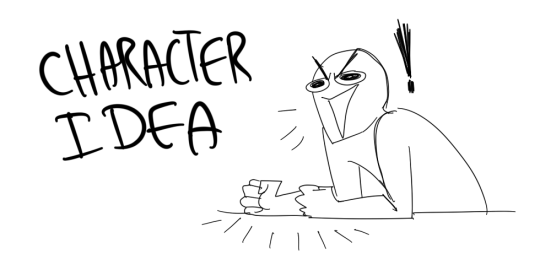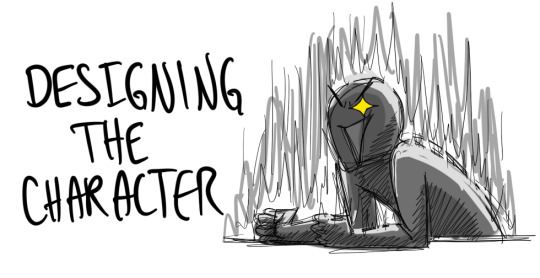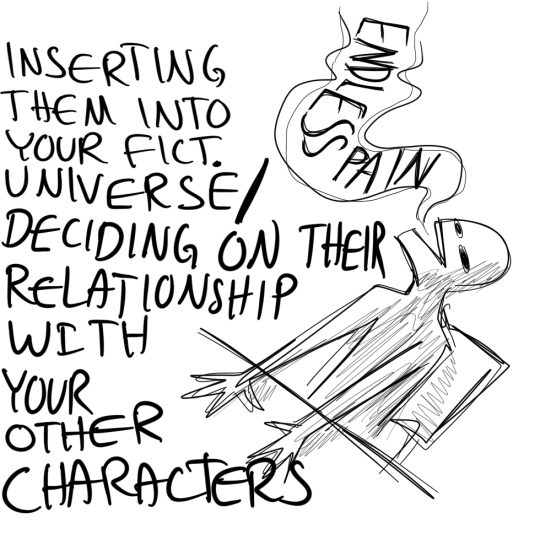he/him, australian, autistic, 21-years-old, My intelligence and stupidity never seem to get in each other's way.
Don't wanna be here? Send us removal request.
Text
Afl rule proposal: hitting the post is like a video game power up, give double points for the nest 30s of play. For both teams.
Justification: it'd amuse me.
0 notes
Text
My dog has the drippiest afl fit, nobody can change my mind

My Grandma made him his own Brisbane Lions jersey <3
20 notes
·
View notes
Photo

We should be fine as long as we do not reblog bread.
193K notes
·
View notes
Text
It's wild that no former or present player in the AFL has ever come out as either gay or bisexual before.
This really got me. 10 years in the sport, an environment so toxic he was afraid to come out.
I feel really proud and frustrated and sad that he has come out right after an incident with a player throwing slurs during a game, but also it's such a brave thing to do, to be the first person.
Onya, Mitch Brown.
44 notes
·
View notes
Text
God gives his hardest battles to his strongest soldiers and I'm dodging the draft
115K notes
·
View notes
Text
How to Make Your Writing Less Stiff 10 | "Feel" and Sensory Verbs
Been a while since one of these!
Part 9
Part 8
Part 1
Speaking again on crutch words, specifically he/she/they hears, sees, feels, smells, tastes… it’s so situational and so specific that anyone giving writing advice on absolutes has no business doing so.
They become crutch words when they’re there as a vector for the narrator to describe to the audience some sensory detail. They’re not crutch words when it’s the narrator using them for themselves, which is hard to explain.
Examples:
She sees the clouds rolling in
He hears a racket outside
They taste cinnamon and nutmeg
Stating that the narrator does these things is redundant. They are the narrator, by the fact that they are narrating, they are experiencing these things.
Clouds are rolling in
A racket starts up outside
[the drink] is cinnamon and nutmeg
You lose nothing except redundancy by removing the narrator from the equation.
Alternatively, these words can be necessary, especially for emphasis when it’s a negative.
He doesn’t hear the storm rolling in
She doesn’t see the man with the gun
They can’t smell the smoke
You could swap these out for something more colorful, like “He’s deaf to the storm rolling in” or “She’s blind to the man with the gun” but that’s personal preference and once again, dependent on the scene. There isn’t really a word to describe an inability to smell beyond nose-blindness and that’s not a good alternative, anything else would be esoteric.
And of course leaving in phrasing like:
He won’t hear any of this nonsense
She doesn’t see why that’s a problem
They don’t feel like moving
The difference here is that these are active verbs (and also not literal, physical uses of any of them). A character choosing to (or not to) do something, vs passively stating the information for the sake of the audience in the first trio of examples.
He feels angry
He feels like punching a wall
Both use “feel,” but the first is passive, and telling, the second one is showing. You can still swap out “feel” for something like these examples
He’s going to punch a wall
He contemplates punching a wall
He just might punch a wall
But you don’t have to, especially if you’re writing a very colloquial book or something for younger audiences where getting overly fluffy for the sake of avoiding the easiest and most effective word is being complicated for complication’s sake.
Also if you have a paragraph that reads something like this, deliberately emphasizing the word “feel”:
How does he feel? Livid, red hot, boiling where he stands. He feels like kicking something, like making a mess, like punching a wall.
Vs
How does he feel? Livid, red hot, boiling where he stands. He debates kicking something, making a mess, punching a wall.
Neither is superior to the other, the first comes across as more sarcastic and petty, taking the presumed question of “how do you feel” as an insult, vs the second one where he probably doesn’t have an issue with the asker.
Deliberate repetition of a word or phrase for emphasis is a lit device! Called anaphora.
How your narrator speaks can be indicative of their age, headspace, education, upbringing, and sense of self. These two sentences aren’t enough to inform a character but you might have a situation where one feels more appropriate for your narrator than the other.
74 notes
·
View notes
Text
the procrastinator’s mind will invent distractions you’ve never conceived of in order to avoid tasks even a dog could do.
58K notes
·
View notes
Text
Don't let my apparent intelligence fool you, it does not get in the way of me being a dumbarse.
0 notes
Text
💥 Small Writing Habits That Genuinely Changed How I Write 💥
listen. i’m not here to sell you a productivity system or convince you that waking up at 5am will make you a novelist. i am deeply Not That Girl. HOWEVER, here are 5 chaotic little writing habits that quietly rearranged my brain chemistry:
✏️ typing BEFORE i know what happens i used to think i had to outline everything before writing. wrong. i get more done when i let the scene surprise me. just start with vibes and a line of dialogue. the rest shows up once you start moving.
🗣️ saying the scene out loud like a play no joke. talking my scenes out like a script?? life-changing. the pacing, the emotion, the rhythm of it all makes more sense when i act like i’m gossiping about my blorbos in a voice memo.
⌛ 20-minute timers (not for productivity, just to start) i tell myself “just 20 minutes.” sometimes i stop. sometimes i blink and it’s 2 hours later and someone’s been emotionally eviscerated in chapter 12. this one’s black magic. use wisely.
🕯️ re-reading my WIP like a book no editing, no judging, just reading through with snacks like it’s already published. changes how i see the pacing and emotional arcs. also reminds me it doesn’t completely suck.
🧂 leaving in the messy parts i used to delete scenes that felt “off.” now i just write a little comment like “THIS IS BAD BUT KEEP GOING.” turns out momentum matters more than vibes. shocking, i know.
anyway. tiny habits. huge mental rewiring. 10/10. highly recommend.
7K notes
·
View notes
Text
How to use Em Dash (—) and Semi Colon ( ; )
Since the ai accusations are still being thrown around, here's how i personally like to use these GASP ai telltales. 🦄✨
Em Dashes (—)
To emphasize a shift / action / thought.
They're accusing us—actually accusing us—of using AI.
To add drama.
They dismissed our skills as AI—didn't even think twice, the dimwits—and believed they were onto something.
To insert a sudden thought. Surely they wouldn't do that to us—would they?
To interrupt someone's speech. "Hey, please don't say that. I honed my craft through years of blood and tears—" "Shut up, prompter."
To interrupt someone's thoughts / insert a sudden event.
We're going to get those kudos. We're going to get those reblogs—
A chronically online Steve commented, “it sounds like ai, idk.”
Semi Colons ( ; )
To join two closely related independent sentences / connect ideas.
Not only ChatGPT is capable of correct punctuation; who do you think it learned from in the first place?

Ultimate pro tip: use them whenever the fuck you want. You don't owe anyone your creative process. 🌈

20K notes
·
View notes
Text
5 Tiny Writing Tips That Aren’t Talked About Enough (but work for me)
These are some lowkey underrated tips I’ve seen floating around writing communities — the kind that don’t get flashy attention but seriously changed how I write.
1. Put “he/she/they” at the start of the sentence less often.
Try switching up your sentence rhythm. Instead of
“She walked to the window,”
try
“The window creaked open under her touch.”
Keeps it fresh and stops the paragraph from sounding like a checklist.
2. Don’t describe everything — describe what matters.
Instead of listing every detail in a room, pick 2–3 objects that say something.
“A half-drunk mug of tea and a knife on the table”
sets a way stronger tone than
“There was a wooden table, two chairs, and a shelf.”
3. Use beats instead of dialogue tags sometimes.
Instead of:
"I'm fine," she said.
Try:
"I'm fine." She wiped her hands on her skirt.
It helps shows emotion, and movement.
4. Write your first draft like no one will ever read it.
No pressure. No perfection. Just vibes. The point of draft one is to exist. Let it be messy and weird — future you will thank you for at least something to edit.
5. When stuck, ask: “What’s the most fun thing that could happen next?”
Not logical. Not realistic. FUN. It doesn’t have to stay — but chasing excitement can blast through writer’s block and give you ideas you actually want to write.
What’s a tip that unexpectedly helped with your writing? Let me know!! 🍒
26K notes
·
View notes
Text
GUIDE: NAMING A TOWN OR CITY
This post was originally from a FAQ, but since the original link is now defunct, I am re-posting it here.
There are many things to keep in mind when naming the town or city in your novel:
1) Genre/Theme/Tone
It’s very important to consider the genre and theme of your story when choosing a town name. Take these names for example, each of which indicates the genre or theme of the story: King’s Landing (sounds fantastical) Cloud City (sounds futuristic) Silent Hill (sounds scary) Sweet Valley (sounds happy and upbeat) Bikini Bottom (sounds funny) Radiator Springs (sounds car-related) Halloween Town (sounds Halloween-related) Storybrooke (sounds fairytale-related) 2) Time/Place It’s also important to consider the time and place where your story takes place. For example, you wouldn’t use “Vista Gulch” as a name for a town in Victorian England. You probably wouldn’t use it for a town in modern day North Carolina, either. Vista is a Spanish word and would normally be found in places where Spanish names are common, like Spain, Central and South America, the southwest United States (including southern California), Cuba, Puerto Rico, Dominican Republic, and Florida. 3) Size/Settlement Type An isolated town of 300 people probably won’t be Valley City, but a sprawling metropolis of 30 million could be called Windyville, because it could have started out as a small town and grew into a large city. 4) Geography Words like gulch, butte,and bayou tend to be regional terms. You probably wouldn’t find Berle’s Bayou in Idaho, or Windy Butte in Rhode Island. Words like mount, cape, and valley are dependent upon terrain. Most of the time, you won’t have a town named “mount” something unless there are hills or mountains nearby. You wouldn’t use “cape” unless the town was on a cape, which requires a large body of water. 5) History Is there a historical person or event that your town might be named after? The Simpsons’ hometown of Springfield is ironically named after its founder, Jebediah Springfield. Chattanooga, Tennessee is named after the Cherokee town that was there first. Nargothrond, in The Lord of the Rings, is an Elvish town with an Elvish name. 6) Combination of Words
person name + geographical term = Smithfield, Smith Creek
group name + geographical term = Pioneer Valley, Settlers’ Ridge
descriptive word + geographical term = Mystic Falls, Smoky Hill
person name + settlement type = Smithton, Claraville
landmark + settlement type = Bridgton, Beaconville
Word Lists
Types of Settlements

Geographical Features
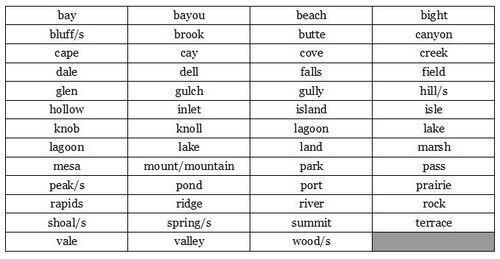
Place Words

Common Suffixes
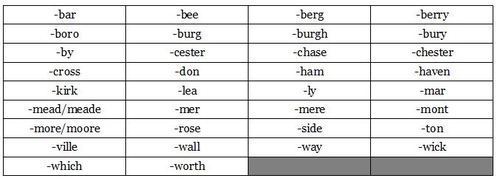
Other Descriptors
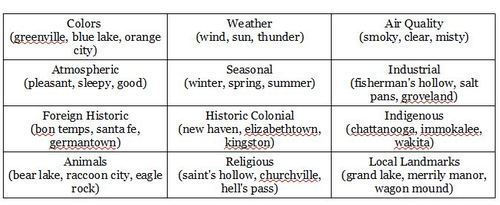
29K notes
·
View notes
Text


when me and my boyfriend make meals we have a tradition of sending each other unappetising off-centre photographs of them in poor lighting. we call this "wikipedia food".
57K notes
·
View notes
Text
I got this while scrolling on instagram to try to convince me to join threads and I—
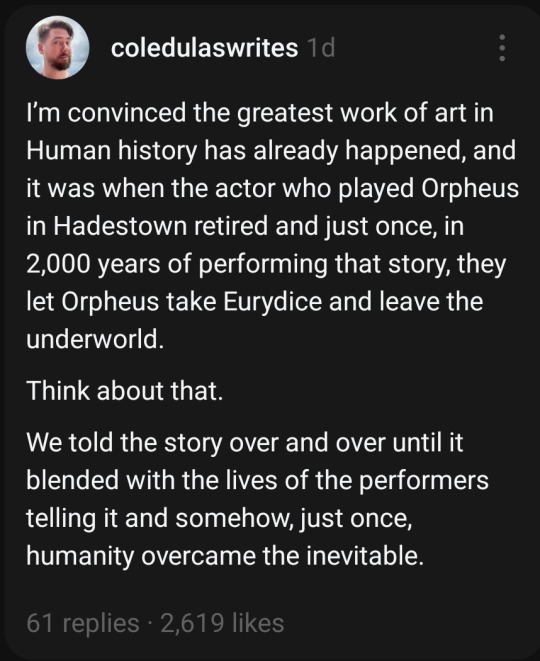
We did it. We finally saved her.
23K notes
·
View notes

